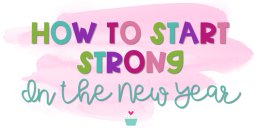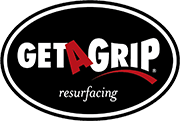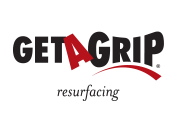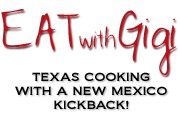New Year, Strong Start
January 2023 by Sharon Dillard

Whew! We’re through another holiday season, with its bustle of festivities, obligations and stresses. A new year is your time to start fresh, pursue new opportunities for learning, or to let go of things that don’t serve you. Starting the year off strong might also include looking back and contemplating how far you’ve come.
However you approach the start of 2023, take this opportunity to refresh, get focused, and back into the swing of things. Here are a few ideas to kick start you.
Change your view. Happy people generally don’t rely on outside sources and influences to determine their self-worth and sense of well-being. The happiest people I know look for internal sources of positivity and good energy, rather than waiting for ‘life’ to provide them with happiness.
Stop comparing yourself to others. It’s easy to look at someone else’s life and feel like they have it made or wish you had what they do. It’s almost impossible to find true happiness based on comparisons. So if you find yourself thinking these thoughts, remember not to compare your life to anyone else’s life.
Slow down to speed up. For 30 minutes each day, I think, plan, and visualize. By slowing down, I have become aware of my biggest opportunities, smartest activities, and greatest tactics for growth. With this insight and clarity, I can take actions to drive excellent results. To really commit to making 2023 your breakthrough year and know you’ll have to slow down for a bit each day to accomplish this. Then you’ll be perfectly prepared to speed up and win.
Narrow efforts. Doing too many things at once scatters your focus and can make you feel as if you’re just bouncing around, unsure of the best direction. Start with one major undertaking. Then, break that goal or project down into small, bite-size steps. Smaller steps ensure a strong start and are likely to result in a strong finish.
Build new habits. The initial wave of enthusiasm for new ventures sometimes dwindles when your first efforts don’t produce immediate and amazing results. So, focus on the process itself to build new habits. Practicing a skill takes time. For instance, if you want to become more fit, concentrate on being able to jog a little bit farther every time you go for a run, rather than focusing on being able to run five miles within a week. Persistence pays off.
Organize your time. Keep a schedule to make the goals and habits you just identified happen. Learn to say no to demands on your day that don’t align with these goals. You’ll be less frantic and have more time to do the things that energize you.
Say goodbye to negative people. If you spend time with positive people, you are more likely to be positive. And vice versa. So, do you best to distance yourself from the naysayers in your life – those individuals whose negativity is more the norm rather than the exception. It might be hard, but remember – you have just as much responsibility to take care of yourself as you do anyone else.
How you react to stress is key. It’s easy to get caught in a downward spiral of stress when a problem arises. I ask myself, “Will this be causing me this much stress a month from now?” This always help calm me down and provide some perspective. We’ll never be able to completely avoid the stress the world throws at us, but how we cope with it daily plays a huge role in shaping our overall happiness.
Move and eat healthy. Good nutrition and physical activity can make a big difference in your mental outlook and physical stress. Better yet, discover activities you can do with a partner or friend – such as hiking, walking or taking cooking classes – to reinforce each other’s positive intentions.
The New Year gives us an opportunity to become new ourselves by wiping the old year’s slate clean. Starting the year off strong is the time to refresh, get focused, and back into the swing of things. Remember to focus on the process itself, and always try to be good to yourself. Just sayin’.
Published: New Mexico Apartment News Magazine – Jan/Feb 2023
Sharon Dillard is the award-winning CEO of Get A Grip Inc., a national franchise kitchen and bathroom resurfacing company based in Albuquerque, New Mexico.

Making the Holidays Less Stressful
November 2022 by Sharon Dillard
 This may be the first year in a few that many of us will be lucky to be surrounded by family and friends over the holidays. Which means that this time of year will be filled with both and stress. Especially when you run a business. Instead of enjoying our families, we business owners, managers and supervisors feel guilty for not being more productive. And on the flip side, if we do keep working, we feel guilty for not spending more time with family.
This may be the first year in a few that many of us will be lucky to be surrounded by family and friends over the holidays. Which means that this time of year will be filled with both and stress. Especially when you run a business. Instead of enjoying our families, we business owners, managers and supervisors feel guilty for not being more productive. And on the flip side, if we do keep working, we feel guilty for not spending more time with family.
Here are some tips I’ve collected to make the holidays less stressful but still feel like we’re accomplishing our business goals.
Organize. Since you know that you won’t be “working” the way you would during a normal work week or month, plan your tasks and projects accordingly. Make to-do lists: one for the important things that you need to get done before the break and another for what you need to work on after the break.
Schedule well ahead of time. Don’t wait until the last minute to ask for time off. Talk with your family and coworkers to find out how much time you and they would like to take off. And make sure to let everyone know when you will be gone. Keep in mind that not everyone celebrates the same way you do so don’t assume you’ll be able to make those last-minute plans to socialize with relatives or visit customer accounts.
Keep gift giving small. If you decide to give coworkers gifts, keep them small and low-cost. Or do something for the entire department, floor or building, like bringing something to share with the whole team.
Pace yourself. The last thing you want is to disappoint, so make sure you end up with work and social activities that are manageable and that you can deliver on. This includes taking into account that other people might be on their holiday vacation, as well as remembering you also need your own sleep, exercise, and relaxation. You might feel like the Energizer Bunny now but it’s easy to wear yourself out. Remember to take care of yourself. No one wants to be sick over the holidays.
Keep your exercise routine. Shorter days take their toll on everyone’s energy, and that’s before you throw in bad weather, increased traffic and a sense of needing to get everything done before time off. One way to get energized at the office is by getting exercise. Skip the elevator and use the stairs, park in the last row in the parking lot, or go for a walk outside each day at lunch.
Know the consequences of NOT taking time off. For many of us, taking time away feels like a luxury. Some 25 percent of US workers don’t take any vacation at all. But working too much makes us stupider, according to the American Journal of Epidemiology, and actually hurts our chances for a promotion or better job. That’s according to a study by Ernst & Young that found a positive relationship between fewer hours overall and performance. For each additional ten hours away from the office employees took, their performance reviews were eight percent higher the following year!
The holidays can be a fun and joyous time. Stay calm and focus on what needs to be done at the office when you’re there so that you can relax when you leave. Rather than feeling like you got off track because you were enjoying the good cheer of the season, continue the momentum you have going. The key is remembering the holidays are a chance to just enjoy being with friends and family, including your work family! After all, on their deathbeds, no one ever said say “I wish I had spent more time at work.” Just sayin’.
Published: New Mexico Apartment News Magazine – Nov/Dec 2022
Sharon Dillard is the award-winning CEO of Get A Grip Inc., a national franchise kitchen and bathroom resurfacing company based in Albuquerque, New Mexico.

Can Your Business Run Without You
September 2022 by Sharon Dillard
 Well, it finally happened. I got COVID. We’d just returned from a family vacation and something was literally in the air. But even as I was isolating at home, resting and recovering from the effects of this flu-like virus, I wasn’t worried about my business. Why? Because I have great confidence in my team. They know what to do, even when I’m not there.
Well, it finally happened. I got COVID. We’d just returned from a family vacation and something was literally in the air. But even as I was isolating at home, resting and recovering from the effects of this flu-like virus, I wasn’t worried about my business. Why? Because I have great confidence in my team. They know what to do, even when I’m not there.
We’ve put systems and procedures in place to ensure that (almost) whatever the situation, the people in the office and the field know who is in charge of what, who knows the answers to certain tricky questions, and where to look for information. Here are some tips to ensure that your team can carry on without you, when necessary.
Know the Team: Your team is a puzzle full of pieces. There are lots of ways to put them together. Each way yields a result, and some ways give better results. When you get to know your team, you get to understand their needs. Knowing your team means investing the time to understand what motivates them, how they think and how to get the best from them. By embracing the different personalities, you get the best from them.
Clearly Define Roles & Responsibilities: Everyone on the team needs to understand their roles, responsibilities and how they fit into the larger picture. A maverick salesperson may work best on his or her own with little supervision, while others thrive in a group environment where feedback comes regularly from the group. This is absolutely fine when everyone knows what is expected of them and where they fit in the puzzle. When all the pieces fit, each individual’s unique strengths unite to make the team a powerhouse.
Remind the Team of Their Purpose: Constant feedback keeps any team on track. The act of reminding the team of how and what they can be doing better, and receiving feedback from them as to how they could improve the process is important. Don’t wait until a problem occurs to make a course correction. Your team should meet regularly (whatever regularly means to your team) to discuss progress toward its goals. Every team is different, so reminding the team of their purpose and receiving updates from them doesn’t need to be formal or overly structured. A quick check in each day and a team meeting once a week is often just right for some teams. Other teams may need less frequent check-ins. All teams need someone to keep them on track. That’s the leader’s job.
Reward the Team: Acknowledgement and reward is a way to honor the work of the team. People love recognition, so take time to give your team the rewards they deserve. Don’t take performance for granted, even if you believe the team is just doing their job. They could be doing the job anywhere, and remain loyal to leaders and companies that they feel respect their skills and effort. Remember to be genuine as you recognize them, though. Bring in lunch during a busy or stressful point in a project, or arrange for a team outing to build camaraderie.
Celebrate Success: Celebration at the end of a project or reaching a goal is different from a reward. Celebrations are about reflecting on the process and what your team has done well, as well as what it could improve. By taking the time to remember what allowed you to reach your goal, you celebrate the success of the team (not of the leader) that often demanded tremendous effort.
Be a Great Leader: Great leadership builds great teams – leaders make decisions (often difficult ones), set high standards and look for ways to improve. Leaders are only as successful as their teams and the great ones know that with the right team dynamics, decisions and diverse personalities, everyone wins in the end. Building great teams is a balancing act between finding the right people, giving them enough direction and freedom to experiment, fail and (hopefully) succeed.
And successful teams require attention. When your team members feel like they are part something larger than themselves, their collective energy can result in extraordinary results. If your team isn’t delivering, ask yourself why. Are you, as the leader, too much involved? Could you be gone for a week or two weeks without the team falling apart or losing focus? Just sayin’.
Published: New Mexico Apartment News Magazine – September/October issue 2022
Sharon Dillard is the award-winning CEO of Get A Grip Inc., a national franchise kitchen and bathroom resurfacing company based in Albuquerque, New Mexico.

Customer Complaints – Arggh!
July 2022 by Sharon Dillard
 Misunderstandings, mistakes and errors happen in every business. And these days, with staffing shortages, supply chain issues and inflation, everyone is dealing with upset customers. The challenge is to handle the situation in a way that leaves the customer satisfied and thinking you work for a great company. Because customer service is perhaps the single factor that will make any business successful. I would venture than the vast majority of any businesses success is how people-focused the customer service is.
Misunderstandings, mistakes and errors happen in every business. And these days, with staffing shortages, supply chain issues and inflation, everyone is dealing with upset customers. The challenge is to handle the situation in a way that leaves the customer satisfied and thinking you work for a great company. Because customer service is perhaps the single factor that will make any business successful. I would venture than the vast majority of any businesses success is how people-focused the customer service is.
When it comes down to it, most customers don’t even bother to complain. They simply buy from your competitor. Research suggests that up to 80 percent of customers who leave you were “satisfied” with you. Obviously, customer satisfaction is not enough to keep customers coming back. Businesses must positively delight their customers if they want to earn their long-term loyalty and business.
Working in a service business, I deal with some customers who are quicker to complain than others. I have to remind myself that without these customers, there IS no business. They ultimately pay the bills and keep the business rolling. How you deal with their complaint is extremely important. After all, you don’t want them to take their business elsewhere.
Handling customer complaints doesn’t have to be a battle. With the right tools and responses, you can use complaints to help build your business. Follow these tips for effectively dealing with their challenges.
Focus on them. It’s not about you, your problems, or your next sale. It’s about the problem you can solve for the customer. Your full attention is key, and the courtesy of your attention is the single most important behavior a customer expects.
Listen. As soon as someone starts to complain we think of how we will respond to the accusation before we are done listening. Too often we already have the response ready to fight back. Try instead to take a second, breathe and carefully listen to what the customer has to say. Let them finish and don’t get defensive. They are not attacking you personally; they have a problem and are frustrated.
Pause. Don’t say anything for five long seconds after the customer has stopped talking. Take another breath, then move on with educating them. Never defend or justify. People don’t care if you were shorthanded or if you’re having a bad day. They only care that they get their problem resolved. No excuses, just solutions.
Ask. Ask questions in a caring and concerned manner. The more information you can get from the customer, the better you will understand their perspective. I’ve learned it’s easier to ask questions than to jump to conclusions.
Repeat. You should always keep a cool head and be specific so there is no miscommunication. Get the facts straight and show the customer that you’re listening. Repeat back to them their complaint in a clear, slow and professional manner.
Be honest and sincere. Nothing will spoil a relationship faster than getting the runaround or being lied to. So never promise something you can’t deliver, and never make up an answer if you don’t know what the answer is. When you tell customers you’ll research the problem and call them by a certain day or time, do it, even if you have nothing to report.
Apologize. Always apologize, even if you did nothing wrong. Don’t blame another person or department. From the customer’s perspective, he or she has a legitimate complaint, and they expect an apology. It could be as simple as “I’m sorry about that.” A sincere apology will usually diffuse a lot of frustration that the customer has.
Make it right. Solve the problem, or find someone who can solve it — quickly! If a complaint is valid and demands action, then move fast to correct it. Make an effort to resolve the problem. Urgency is the key. You must show the customer that you intend to take steps to correct the problem immediately.
Satisfy. Find out from the customer what would be an acceptable solution. Whether or not the customer knows what a good solution would be, I’ve found it’s best to propose one or more solutions to alleviate their pain. Stress the point that your company is eager to work out any problems and focuses on customer satisfaction.
Thank. At the beginning, at the end, in the middle, it doesn’t matter. Thank the customer for calling. A happy customer will tell two or three friends, but an unhappy customer will tell at least ten friends about their experience and it always multiplies through word of mouth.
Learn. Keep records of your complaints. This will allow you to analyze what went wrong and to make changes to help avoid problems in the future.
There is no getting around customer complaints, regardless of the industry. However, by employing these steps and taking the time to review the issue with the customer, you can turn challenges into something constructive. Just sayin’.
Published: New Mexico Apartment News Magazine – July/August issue 2022
Sharon Dillard is the award-winning CEO of Get A Grip Inc., a national franchise kitchen and bathroom resurfacing company based in Albuquerque, New Mexico.

Attracting & Keeping Employees
May 2022 by Sharon Dillard
 It seems like everyone I talk to has a problem right now. The problem is finding and keeping employees. Many call it the Great Resignation – a flood of job seekers, some unemployed but many with jobs – are moving on to greener pastures. That, combined with a rebounding economy, has resulted in signs everywhere – Help Wanted. In our tight labor market, the competition for the best workers is giving many current staff and job seekers the opportunity to rethink their priorities. That includes where and how they work, and for how much and with what benefits.
It seems like everyone I talk to has a problem right now. The problem is finding and keeping employees. Many call it the Great Resignation – a flood of job seekers, some unemployed but many with jobs – are moving on to greener pastures. That, combined with a rebounding economy, has resulted in signs everywhere – Help Wanted. In our tight labor market, the competition for the best workers is giving many current staff and job seekers the opportunity to rethink their priorities. That includes where and how they work, and for how much and with what benefits.
This situation puts employees or those searching for work in an enviable position. They can find roles that give them not only great compensation, but flexibility, support and sweet perks. So employers need to put their company’s best foot forward and find ways to appeal to what job seekers want right now. Here are some ideas to do that.
Create the culture. A Harvard Business Review analysis found that CEOs are now discussing equity, inclusion, and fairness 658% more now than they did just 4 years ago. Employees want to work for a company that places importance on these values. Can you demonstrate an inclusive, welcoming environment where the color of one’s skin, gender or sexual orientation is valued and appreciated?
Be a great place to work. Are your current employees engaged with meaningful work? Do you fully embrace remote/flex or hybrid working environments? Do your employees like working for you? Think about ways to let them know you appreciate them – weekly catered lunches, after-hours events (dinners, ballgames, movie nights), etc. And if you can’t think of how to accomplish this, ask your current staff. They will have plenty of ideas to make your place a great place to work.
Emphasize skills, not experience. We all want to hire someone who can immediately hit the ground running. Try focusing more on skills and less on the resume to bring you the perfect candidate. Today’s job seekers likely won’t have the “perfect” resume experience, so look beyond the employment gaps, education, and years of experience for someone who is eager to learn and with the skills to perform the job effectively.
Rethink compensation. Businesses that want a competitive advantage in attracting and retaining workers have to rethink what compensation means. For some it means a higher salary, hiring bonus or tuition reimbursement. For others, it means generous time off. For others, it means health insurance or a retirement package. Consider any or all of these to make working for your company more attractive than your competition.
Wellbeing is a priority. One of the top trends of the past year is a renewed focus on employee wellbeing. Have you established or expanded your benefits and perks designed to address the health – physical and mental – of your employees? This might include gym memberships, mental health days, programs that promote healthy work/life balance, parental leave, training or ways to reduce burnout and stress.
Improve your technology. There’s no excuse these days for outdated tech, whether that’s cell phones, computers or the means to do collaborative and/or remote work. In fact, more than 85% of jobseekers consider technology when evaluating a potential job. So get up to date and provide training on how to use the latest technology.
Enlist your current staff. They say birds of a feather flock together. So the best advertisement for your company might be your current employees. Are you incentivizing them to find others like themselves to work for you? A referral bonus or other signs of appreciation when a new staffer is brought in by a current employee might just do the trick.
As we employers adjust our selling points for hiring and retaining employees, we might just find the perfect ways to improve our workplaces, enhance the employee experience and become more attractive companies to work for. Just sayin’.
Published: New Mexico Apartment News Magazine – May/June issue 2022
Sharon Dillard is the award-winning CEO of Get A Grip Inc., a national franchise kitchen and bathroom resurfacing company based in Albuquerque, New Mexico.

Invest in Yourself
March 2022 by Sharon Dillard

As the economy inches its way forward, we think about saving money. Imagine you could wave a magic wand and leave all of your worries, stress and money behind. Like any good portfolio, the best investments you make in yourself are diversified, carefully managed, and geared to the long term.
Years ago, I gave up a lucrative “fast-track” executive position for a simpler life after a good dose of soul searching. Here is what I discovered along the way to a better life through investing in the future:
You’re an asset. Think about that. If you work for someone else, you’re an asset to that company. If you’re married, you’re an asset to your spouse. And it goes without saying that if you have children or grandchildren you are an incredible asset to them. You’re an asset to the community you live in, your neighbors, and to those you interact with you on a daily basis.
Be good to yourself. Give yourself a break when things don’t go the way you’d like. And reward yourself when you succeed. Celebrate little things like checking off items on your to-do list with a special cup of tea or square of chocolate. The only person you can count on is YOU.
Attitude of Gratitude. Having an attitude of gratitude can change your negative thinking into a positive frame of mind. Research shows that practicing gratitude may be the best pathway to happiness, health, long life, and prosperity.
Eat Healthy. Healthy eating is not a diet. It means making changes you can live with and enjoy for the rest of your life. The way we eat affects our entire well-being, helping us feel our best and have plenty of energy. It can help you handle stress better, and prevent and control many health problems like heart disease, high blood pressure, Type 2 diabetes and some types of cancer.
Exercise. People who say they are too tired or don’t have the time, have it backwards. Exercising creates energy. Exercise releases chemicals in the brain that improve mood and mental alertness. In reality, you lack energy because you don’t exercise.
Read. I remember that my Dad read everything he could get his hands on, and knew a little bit about everything. Cutting down on television, carrying a book with you or listening to an audio book during your commutes can squeeze a little more knowledge into time that may otherwise be neglected.
Listen. Ever notice a person who rolls their eyes, talks over you or looks away as you’re talking? I used to do that. It’s taken me a long time to learn to stop and listen. Over the years, I missed some very good advice because I wasn’t listening.
Learn. Be open to learning something new. Diversify your thinking and the people and ideas around you. Change with the times. Your brain withers if it isn’t challenged every day.
Hobby. Find your release, like a hobby. You may find out that a hobby could turn into a fulltime job, or an opportunity to volunteer to help others. This connection with others invests in our own wellbeing, too.
Money. I firmly believe that the key to financial happiness is spending less than you earn. Determine what’s “right” when it comes to how you earn, invest, and spend your income. If you’re not living the life you want, you won’t be able to buy enough things to make up for it.
Home. My home is a place where I gather my strength every day so that I can go back into the world. Make this place special by decorating it in a way that you love. Use color, texture and music to create this sanctuary for yourself. Even a small, sunny nook for reading or listening to music can make a difference.
Family. We’re working longer hours and spending less time with our families. It’s easy to fall into the together but alone trap. Try eating together in the evenings at the table without distractions of TV and computer. Catch up on and with each other.
Good friend. What I call my go to person. This person listens without judgement, advises when asked, and tells us we’re being silly, unreasonable or plain crazy when necessary. Having a person like this gives us a safe place to explore ideas and get encouragement when we need it.
There’s no “one-size-fits-all” formula for the good life. Instead, I’m convinced that no matter how deep in debt or how rich, how unhappy at home or at work or content, you can make your life better. Sometimes all it takes is a bit of fine tuning, investing some time and energy into figuring out what you really want out of life. Just sayin’.
Published: Apartment News Magazine – March/April issue 2022
Sharon Dillard is the award-winning CEO of Get A Grip Inc., a national franchise kitchen and bathroom resurfacing company based in Albuquerque, New Mexico.

New Career Ahead
November 2021 by Sharon Dillard

When is the right time for a career change? Lockdown has certainly given many people the time they might not ordinarily have to think about where they are in their lives and whether their careers are making them happy. The prospect of a career change, particularly in an economy riddled with uncertainty, is never a decision that should be taken lightly, though.
However, moving on may be the most rewarding thing you can do for yourself. I changed my career COMPLETELY – moved to a different state and into an industry I knew nothing about – in my mid-forties. And it was the best decision I’ve ever made.
There are many reasons why people seek a career change. Here are a few for you to consider.
Only in it for the money. Making a lot of money but hating every second of your job (or worse, feeling indifferent to it) is just not worth it. Money doesn’t buy happiness, remember? A career change could give you the chance to land a job that brings both personal and professional satisfaction and still pays the bills. If you get the “Sunday night dreads” or feel the need to constantly compensate for the pain of your working life by buying things, or self-medicating with food, drugs or alcohol, it’s probably time to pivot.
When you’ve learned everything you can. Some wisdom says it’s time to think about a new job or change in career entirely when there’s nothing more for you to learn. Some jobs have long learning curves and provide meaningful experiences for years. Others simply don’t. Every aspect of your job should not be mind-numbingly dull. If you don’t feel quite ready to take the leap to a new job, a good step would be asking to work on a project or task that excites you. If you’ve learned everything you can from your current career and want to learn more, it’s time to move along!
Your job is impacting your self-esteem. A fulfilling career should provide a boost to your confidence and self-esteem, not make you doubt yourself or the work you do. Enduring a toxic workplace culture or a career you no longer enjoy can grind you down and impact your long-term physical and mental health. If that’s how you feel, then it’s time to get out.
Less stress. High stress jobs – healthcare, public service, law enforcement or public safety – have high burnout rates. But any job can be stressful given the right circumstances. So if seeking a less stressful life is the goal, leaving the high pressure career is vital.
More flexible hours. These days, many jobs can be done from home as easily as in an office. If you need more flexible hours to care for family, go back to school, or deal with other circumstances, and your current workplace won’t accommodate you, don’t feel bad about finding another position that will give you the flexibility you need.
Dreading work every day? It is unrealistic to think you’ll wake up every day excited and eager to get to work. We all have days that seem harder than others to get out of bed and be motivated for work. However, if you dread going in to work every day, you probably need to start looking for a new job. The rule of thumb is that you’re unhappy or miserable for more than 90 days in a row, it’s probably time to leave.
Being the boss. If your dream is to run your own business or turn a hobby into a career, there might never be a better time than now to do so. That holds true for whenever “now” is! Because there’s never a more perfect time than when you decide to make it happen.
So whatever the motivation, if you’ve identified with one, several or all of these telltale signs, start the process of moving out of your current position and into a new one. Just sayin’.
Published: New Mexico Apartment News Magazine – November/December 2021
Sharon Dillard is the award-winning CEO of Get A Grip Inc., a national franchise kitchen and bathroom resurfacing company based in Albuquerque, New Mexico.

Balancing Work & Home Life
September 2021 by Sharon Dillard

As businesses have opened around the country, some employees want and will continue to work from home. If that’s within the business’s ability, super! But if you’re an employee working from home, you might be struggling with balancing work and home demands. It’s easy to fall into the too much work trap, or the opposite. Home demands may be interfering with your ability to get work done.
Back in the pre-pandemic days, going to work, then rushing home to cook, clean, and help the kids with homework had many of us feeling drained. Being at home for an extended period of time during the pandemic allowed many of us to find balance between family demands and the boss’s. Now, after my own experience balancing work and home life, here are a few ideas to help.
Rise and shine. Try waking up several hours before starting work. A few more added minutes to your morning can help with tasks around the house – defrosting something for dinner or starting the dishwasher. The small things we do on a daily basis add up. By waking up a little earlier you eliminate frantically preparing yourself and/or your kids, not eating breakfast or forgetting tasks that can accumulate by the end of the day and week.
Food to go. Keep nuts and health bars handy. This helps when you’ve got to get the kids or yourself to a soccer game or doctor’s appointment and your schedule doesn’t allow time to fix lunch or dinner. I do this and it’s been a real lifesaver!
Go-to place. Near the door, find an area for items that you need on a daily basis: keys, purse, school backpacks or letters to be mailed. Also, keep a petty cash jar handy for all household members to use for parking, lunches or that all important tip for the delivery person.
Go-to person. Find a trusted friend that you can vent your frustrations to. And equally important, allow them to vent to you. Share your feelings to ease your pain. Put a time limit on the pity party, though, then do something fun together.
Routine. You’ve heard it before. Repetition strengthens and confirms. Develop routines in your life so that on the days you don’t have the mojo, you can put yourself on autopilot. Knowing you can fall back on built-in routines will get you through the day.
Say no. Quit doing things out of guilt or a false sense of obligation – both in your personal and professional life. You will make more room for the activities that are meaningful to you and bring you joy.
Leave work at work. With the technology to connect to anyone at any time virtually anywhere, there’s no real boundary between work and home – unless you create it. Make a conscious decision to separate work time from personal time. When you’re with your family, turn off your cell phone. When it’s time to take a vacation, take that time off. You need that time to recharge for when you’re back to work.
Leave home at the door. Assuming you’ve got someplace other than the kitchen table to work! If you do, close the door to your workspace and hang a sign that says “Unless the house or you are on fire, do not disturb.” And then concentrate on work while you’re there. Remember those boundaries.
You’re worthy of balance. Eat healthy foods and include physical activity as a part of your life. Better yet, discover activities you can do with a partner or friend – such as hiking, yoga or taking cooking classes (my favorite). Schedule these things regularly – even during your “work” day. Taking a 15-minute break to walk around your neighborhood can actually make you more productive.
Laugh. Look on the bright side and have a sense of humor. Remember that great viral video of the two kids interrupting the man’s work meeting and he just kept talking? Stuff happens, so laughing can help ease difficult situations.
So if you’re someone continuing to work from home, try these strategies to bring balance to your life. Just sayin’.
Published: New Mexico Apartment News Magazine – September/October issue 2021
Sharon Dillard is the award-winning CEO of Get A Grip Inc., a national franchise kitchen and bathroom resurfacing company based in Albuquerque, New Mexico.

The Benefits of Trying Something New
July 2021 by Sharon Dillard
 It’s really easy for us to fall into a routine. Routines are good, because they keep us on schedule, keep us moving forward, and help to create a stable daily life. But sometimes shaking up our regular routines is the best way to grow.
It’s really easy for us to fall into a routine. Routines are good, because they keep us on schedule, keep us moving forward, and help to create a stable daily life. But sometimes shaking up our regular routines is the best way to grow.
At age 44, I decided to make a career change to start a business in a garage. In a different state. Who does that? Was I scared of trying something new? You betcha! By stepping into the unfamiliar, though, I achieved incredible benefits for myself – emotionally, physically, creatively, and more.
So, what do you have to lose by taking a leap into the unknown? The benefits of trying new things are incredible. And it’s never too late to venture out of your comfortable routine. Here are some of the gains you can achieve by trying new things, whatever they may be.
Time becomes more memorable. By trying new things, you benefit from new and special memories that will last a lifetime. Trying something new gives you a fresh perspective. And gets you excited with the anticipation of what might happen!
Fear takes a backseat. One of the best and most exciting benefits of trying something new is that you overcome fear – fear of the unknown, fear of the imaginary consequences and fear of failure. As you practice new adventures, fear transforms from a crippling factor to a minor bump in the road. You’ve created a new routine after all!
Your sense of adventure grows. Your adventurous self is set free when you try new things. These new things can be as simple as a food you’ve never tasted or a recipe that’s not in your usual rotation. Or they can be as complicated as learning a new language or planning a vacation to an exotic, faraway land. Approaching these new opportunities with the spirit of adventure sets us up for success and helps us approach the next challenge with even more confidence.
New experiences stimulate creativity. When you try new things, you challenge your brain to think and adapt. This stimulates creativity. That creativity naturally transfers to other areas of your life. You begin to think about everything differently. That’s amazing!
You learn empathy. Trust me, you aren’t the first person to take up a paintbrush, mount a saddle for horseback riding or attempt to learn Chinese. Trying something new teaches you about other people’s experiences and the struggles they went through to achieve their goals. Empathy and insight into another person’s life are perhaps the most valuable lessons you can ever learn.
You’ll get to know yourself better. The more you try, the more you’ll figure out what you really like and dislike – because these preferences are unique to you! You may find that salsa dancing, making bread from scratch, learning to fly a plane are all things you really enjoy. Or that you don’t. Really, how do you know if you like or dislike a new food, activity or adventure before you try?
Your emotional health improves. Studies show that people who engage in a variety of experiences are more likely to retain positive emotions and minimize negative ones than people who have fewer experiences. Being emotionally centered is good for you, and those around you.
Your physical health will benefit. There are health benefits that come from constantly developing and living one’s life to the fullest. Ancient Greek philosopher Aristotle called it eudaimonia, or the condition of human flourishing or of living well. Today, research posits that the greater sense of purpose and personal growth associated with eudaimonia correlates with lower cortisol levels, better immune function, and more efficient sleep. Bonus!
You listen to your gut. So, after taking those piano lessons for a few weeks you’re not enjoying them? Do they feel too much like homework? Stop. It’s okay to listen to your gut when it talks to you. If a new venture isn’t exciting or fun anymore, take the experience and move on to the next one. But don’t make an immediate snap judgement. Remember that being uncomfortable is part of the process of trying something new.
So, I challenge you to do something that you’ve been interested in for a bit. Is it volunteering with homeless pets? Is it joining a writer’s group to hone your story telling skills? Is it designing a new garden or painting your kitchen? Whatever the new thing is you’ve wanted to try – go for it! You’ve got nothing to lose but your fear. And so very much to gain. Just sayin’.
Published: New Mexico Apartment News Magazine – July/August issue 2021
Sharon Dillard is the award-winning CEO of Get A Grip Inc., a national franchise kitchen and bathroom resurfacing company based in Albuquerque, New Mexico.

Life Lessons Learned
May 2021 by Sharon Dillard
 As I get older, I find that I am becoming wiser. Wisdom comes with age―mostly from making mistakes and learning from the consequences. And I earned every one of those gray hairs that my stylist covers up. The most important thing to remember is that each mistake is a chance to learn, and to grow personally and professionally. Here are some things I’ve learned over the years.
As I get older, I find that I am becoming wiser. Wisdom comes with age―mostly from making mistakes and learning from the consequences. And I earned every one of those gray hairs that my stylist covers up. The most important thing to remember is that each mistake is a chance to learn, and to grow personally and professionally. Here are some things I’ve learned over the years.
It’s okay to slow down: As a perfectionist and a workaholic, I used to think that being busy all the time was a badge of honor. That if I was not doing something productive or knocking myself out, that I was a complete failure. But I have also learned that slowing down is actually good. Working too much makes us stupider and depressed according to the American Journal of Epidemiology. So slow down!
Choose your words. Words can be powerful, and I’ve learned (only with time) to choose mine carefully. Have you ever said something or texted someone a quick response, to only think later “Why did I say that?” I have learned to pause and collect my thoughts before responding in haste. That way I can fully concentrate on what I have been told or asked and can consider how to best reply.
It’s okay to ask for help. I’ve always struggled with asking (and accepting) help from others. But I’ve learned that I’m not suited for all tasks or jobs. So, I surround myself with people who have different strengths and skills than me. Admitting that I need and want help also allows those people to shine in their jobs! It’s a win-win for everyone.
Use the “off” switch. This is a big one in today’s fast-paced world. It’s okay to turn off social media and the news. That off switch really works! My mind can’t handle the constant negativity, fighting, and toxicity that we often see on TV or online, so I’ve learned to really limit my consumption of it all. I personally find myself much happier when I’m not comparing myself to everything I see on social media.
Love and respect yourself and others will do the same. A good friend of mine once pointed out that I was unconsciously saying things to myself that were hindering me. I had no idea that I was doing this. So, I made the conscious decision to identify those negative thoughts as they happen and replace them with positive ones, I eliminated limiting phrases like, “I can’t …” “I won’t be able to …” “There’s no way …” and replaced them with empowering phrases likes “I can …” “I will….” “I’m capable of …” As soon as I started using uplifting language not only did, I believe in myself more, but so did everyone around me.
Learn from your mistakes without beating yourself up. Some days we just blow it. We drop the ball, snap at a coworker or loved one, or the day just doesn’t go as planned. We also set unrealistically high goals or standards for ourselves and feel like we should be doing more. But don’t blame others – take responsibility. Then stop obsessing! It happened. Learn from it and let it go. You’re only human.
Put work aside. Rest equals recharging your creativity and energy. That doesn’t just mean getting a good night’s sleep – it also means taking time off to relax and play. When I learned that this isn’t “wasting” time, I found myself with more energy and ideas and interest in my work. That also means when you’re sick, stay at home and rest, too. And don’t be afraid to put your work aside and enjoy some time relaxing with friends, family or by yourself.
Take the time for self-care. If your body is healthy and in good repair, you are better able to handle any stress in your life. Conversely, a healthy mind impacts your body, too. Eat a healthy diet, exercise regularly, drink plenty of water and get enough sleep. And indulge yourself with whatever you consider self-care – get a mani/pedi (yes, guys, too), a massage, play golf, go to the movies, read a book, play with your pet, have a special cocktail, or fancy dessert.
Set boundaries. Saying yes when you should say no can leave you feeling resentful and overwhelmed. Friends and colleagues will understand if you can’t participate in every project or activity. Be prepared to say no when someone asks you to do something you don’t want to do. You’ll feel better and it’ll be easier the next time.
So take a lesson from someone who’s been around the block a few times. Give yourself a break and learn from your past. Take the negative and positive lessons and apply them going forward. Be happy you’ve gotten to this point―you’ve grown. Just sayin’.
Published: New Mexico Apartment News Magazine – May/June issue 2021
Sharon Dillard is the award-winning CEO of Get A Grip Inc., a national franchise kitchen and bathroom resurfacing company based in Albuquerque, New Mexico.














Recent Comments